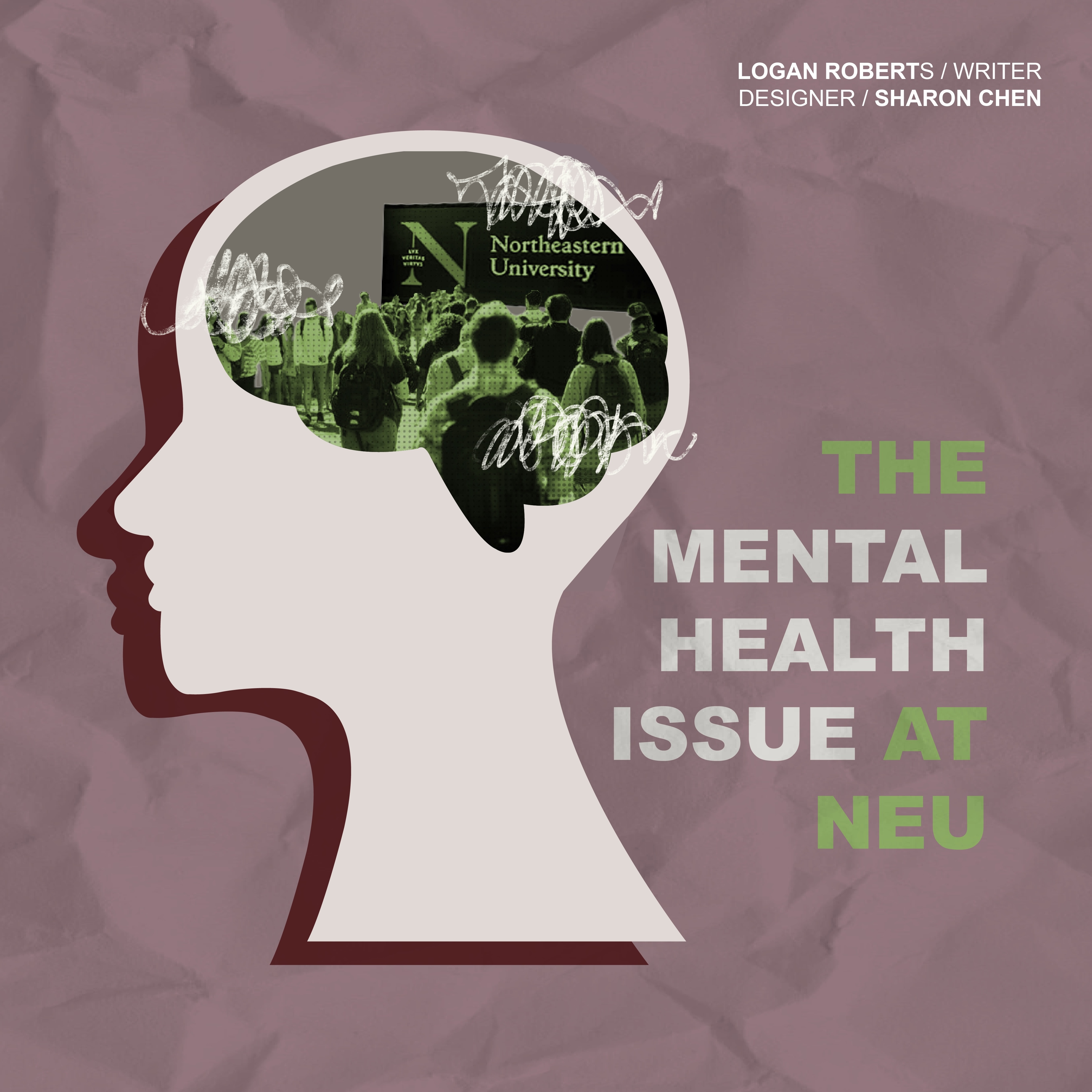
Every year, as the fall semester begins, Northeastern University’s campus fills with thousands of students in Boston. As work piles up and students begin to buckle down – stress starts to climb. Stressors rise with exams, co-ops, and balancing academics with social life. More recent stressors like the COVID-19 pandemic and the dropping temperatures of the notorious Boston weather fuel serious mental health issues.
During times like these, more than ever, adequate resources are needed for students to be able to focus on their schoolwork and stay in the right headspace. Mental health is becoming a larger issue on campus, as concerns about the resources provided are rising and advocacy towards mental health is strengthening. The University needs to do more.
Esme Bonnin, a fourth-year computer science major, argues that the lack of accessible resources can be extremely discouraging for students. “Everything is possible at Northeastern, but you have to be proactive, which is hard,” said Bonnin, who utilizes many of the mental health services on campus.
Bonnin explained how resources on campus exist but aren’t easily accessible by all. Once finally connected to counselors on campus, Bonnin had a positive and fulfilling experience with these resources. After reaching out to Northeastern’s University Health and Counseling Service (UHCS), the University’s core mental health resource, she was connected to counselors on campus. However, this was after a long process of calls, being on hold, and paperwork.
However, Bonnin’s counselor provided her with helpful resources that led her to succeed and get to where she is today. Without these resources, she explained, “the past few years would look very different.”
Nes Tam, a fifth-year cognitive psychology major, hit similar walls when trying to connect to the resources on campus. Unlike Bonnin, she wasn’t able to get the services needed at Northeastern and had to use outside resources.
“Some students don’t even know what they are looking for or what they want,” Tam said. “I wish there was more transparency with Northeastern and advocating for their students.”
It seems that Northeastern has recognized some of the flaws in its system and has been trying to improve accessibility to the resources they provide. Especially with the COVID-19 pandemic, Bonnin explains, Northeastern has been trying to reach out to more students and offer guidance during these unprecedented times.
Last year, Bonnin tested positive for COVID and was put into wellness housing. There she was offered a personal therapist. Outside of wellness housing, counselor sessions were once limited to only ten sessions per student but are now unlimited. As part of Northeastern, students also have free access to a mental health and wellness app: “Headspace.”
Northeastern’s mental health services still need improvements to be made. A major flaw is the accessibility and advertising of resources, as well as the tedious process of getting the help students need. Student concerns reflect the need to address mental health. Adding more counselors, releasing more information on resources, and creating an environment where students can comfortably reach out, will make a huge difference.